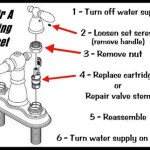Do You Need a Permit for a Bathroom Remodel?
Bathroom remodeling projects range from simple cosmetic updates to complex renovations involving plumbing and electrical work. Determining whether a permit is required depends on the scope of the project and local building codes. While seemingly a bureaucratic hurdle, obtaining the necessary permits protects homeowners from potential legal and safety issues.
When Permits Are Generally Required
Most jurisdictions require permits for bathroom remodels that involve structural changes, plumbing alterations, or electrical modifications. This includes projects such as:
* Moving or adding walls * Relocating plumbing fixtures (sink, toilet, shower) * Replacing or adding electrical wiring or outlets * Installing or modifying ventilation systems * Changing the layout of the bathroom significantly * Expanding the bathroom's footprint
Cosmetic Changes That Typically Don't Require Permits
Minor cosmetic updates often do not require permits. These projects typically involve surface-level changes and don't impact structural elements, plumbing, or electrical systems. Examples include:
* Replacing a toilet with a similar model in the same location * Replacing a faucet or showerhead * Repainting walls * Re-tiling or replacing flooring without altering subflooring * Replacing a vanity without changing plumbing connections * Installing new light fixtures without new wiring
The Importance of Checking Local Building Codes
Building codes and permitting requirements can vary significantly between municipalities and even within different areas of the same city. It's crucial to contact the local building department or permit office to determine the specific requirements for a planned bathroom remodel. This avoids potential penalties, delays, and complications during and after the project.
* Local building codes dictate specific requirements for materials, installation methods, and inspections. * Some jurisdictions have stricter regulations regarding accessibility and energy efficiency. * Consulting with the local building department ensures compliance with all applicable codes.
Benefits of Obtaining Permits
While obtaining permits may seem like an added expense and time commitment, it offers several important benefits:
* Ensures compliance with building codes and safety standards * Protects against potential legal issues and fines * Can increase the value of the property * Facilitates a smoother home sale process * Provides peace of mind knowing the work is done correctly and safely
Risks of Remodeling Without a Permit
Failing to obtain necessary permits for a bathroom remodel can result in several negative consequences:
* Fines and penalties imposed by the local government * Difficulty selling the home in the future * Potential issues with insurance coverage in case of damage * Increased risk of safety hazards due to improper installation * Forced removal or correction of unpermitted work
The Permit Application Process
The permit application process generally involves submitting detailed plans and specifications of the proposed remodel to the local building department. This typically includes:
* Drawings of the existing and proposed bathroom layout * Specifications for plumbing and electrical fixtures * Information about ventilation systems * Details of any structural changes * Payment of applicable permit fees
Inspections During and After the Remodel
Once a permit is issued, inspections are typically required at various stages of the remodel. These inspections ensure compliance with building codes and approved plans. Common inspection points include:
* Rough-in inspection of plumbing and electrical work * Framing inspection for structural changes * Final inspection after all work is completed
Working with a Licensed Contractor
Hiring a licensed and insured contractor is highly recommended for any bathroom remodel, especially those requiring permits. Experienced contractors are familiar with local building codes and permitting processes. They can:
* Advise on permit requirements * Handle the permit application process * Ensure compliance with building codes throughout the project * Coordinate inspections with the local building department * Provide warranties for their work
Maintaining Records
Keeping records of the entire remodeling process, including permits, inspections, and contractor agreements, is essential. This documentation can prove valuable when selling the home or dealing with insurance claims. Important records to keep include:
* Copies of the approved permits * Inspection reports * Contractor invoices and contracts * Warranty information for materials and fixtures

Do You Need Permits To Remodel A Bathroom Sweeten Com

Do You Need A Permit For Bathroom Remodel

Do I Need A Permit To Remodel My Bathroom Core Renovation

Permits For Bathroom Remodeling Projects Complete Guide

Do I Need A Permit For Kitchen And Bathroom Renovations Karin Ross Designs

Hold Up Do You Need Permits To Remodel A Bathroom

Do You Need Permits For Bathroom Remodel What To Know In 2024 Badeloft

Do You Need A Permit For Bathroom Remodel Understanding Requirements

Do You Need A Permit To Remodel Bathroom Build Method Construction

Do You Need Permits To Remodel A Bathroom In Houston
See Also







